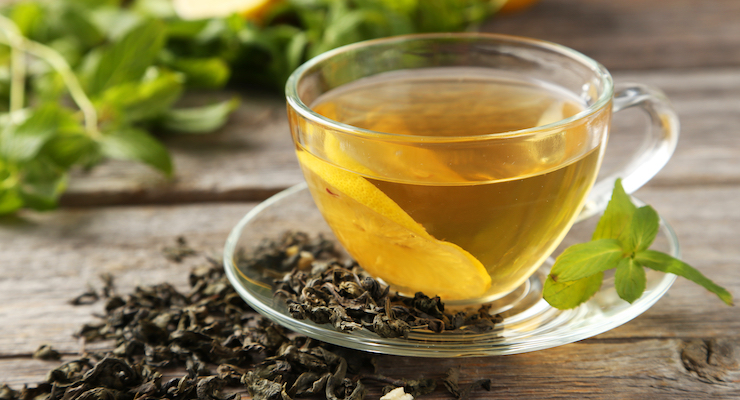09.17.20
While clinical trials evaluating green tea’s effect on blood lipids have reached varied results, strong evidence on the whole indicates that green tea has some protective effect on hyperlipidemia. A recently-published meta-analysis, appearing in BMC’s Nutrition Journal, reviewed a total of 31 clinical trials investigating outcomes of green tea consumption on blood lipids found that, among a total population of 3,321 subjects, consumption of green tea was shown to significantly reduce total cholesterol and LDL cholesterol. However, it did not have a significant effect on either HDL cholesterol or triglycerides. These effects were consistent across populations which were normal weight, overweight, or obese.
“Tea polyphenols, specifically catechins (flavonoids), are crucial in promoting health,” the authors of the study said. “The four major catechins (constituting 25-30%) reported in green tea are epicatechin (EC), epigallocatechin (EGC), epicatechin gallate (ECG), and epigallocatechin gallate (EGCG). EGCG is most abundant (50-60% of total catechins), and has anti-inflammatory, antioxidant, anticarcinogenic, and anti-obesity properties.”
Subjects that were included in the trial were adults who had consumed green tea for at least two weeks, and were enrolled in a trial with randomized, controlled design which reported effects on measurements of one of the four blood lipid types. Any green tea extracts they were supplementing with did not include other active ingredients. Additionally, control groups had to be concurrent in the trials, and each trial enrolled at least ten participants. Subjects were excluded from the meta-analysis if the trials enrolled children or pregnant women, or if the trials involved green tea as part of a calorie-counting beverage. The duration of the studies included ranged from 3 weeks to one year, with green tea catechin intake ranging from 80-2488.7 mg daily.
Overall, there was a 2.3% decrease in the total cholesterol concentration while consuming green tea across all of the trials involved. Additionally, green tea supplementation significantly reduced the LDL cholesterol by 4.55 mg/dL across all trials, compared to the placebo effects. It was found that the length of the trial durations had a greater impact on blood lipid reductions, indicating that sustained consumption resulted in a greater benefit.
The authors of the study concluded that these results must be reached more definitively through additional studies enrolling large cohorts for greater durations.
“Tea polyphenols, specifically catechins (flavonoids), are crucial in promoting health,” the authors of the study said. “The four major catechins (constituting 25-30%) reported in green tea are epicatechin (EC), epigallocatechin (EGC), epicatechin gallate (ECG), and epigallocatechin gallate (EGCG). EGCG is most abundant (50-60% of total catechins), and has anti-inflammatory, antioxidant, anticarcinogenic, and anti-obesity properties.”
Subjects that were included in the trial were adults who had consumed green tea for at least two weeks, and were enrolled in a trial with randomized, controlled design which reported effects on measurements of one of the four blood lipid types. Any green tea extracts they were supplementing with did not include other active ingredients. Additionally, control groups had to be concurrent in the trials, and each trial enrolled at least ten participants. Subjects were excluded from the meta-analysis if the trials enrolled children or pregnant women, or if the trials involved green tea as part of a calorie-counting beverage. The duration of the studies included ranged from 3 weeks to one year, with green tea catechin intake ranging from 80-2488.7 mg daily.
Overall, there was a 2.3% decrease in the total cholesterol concentration while consuming green tea across all of the trials involved. Additionally, green tea supplementation significantly reduced the LDL cholesterol by 4.55 mg/dL across all trials, compared to the placebo effects. It was found that the length of the trial durations had a greater impact on blood lipid reductions, indicating that sustained consumption resulted in a greater benefit.
The authors of the study concluded that these results must be reached more definitively through additional studies enrolling large cohorts for greater durations.















